Moon Lunar

What are the potential benefits of establishing a lunar base ?
**Heading: Potential Benefits of Establishing a Lunar Base** - **Advancements in Science and Technology:** Research opportunities in various fields, technological advancements in engineering and manufacturing, and testing new equipment for future missions. - **Economic Opportunities:** Job creation across industries, need for support staff, and the emergence of a new industry focused on lunar base operations. - **Energy Production:** Ideal location for solar power generation, potential for energy export to Earth, and development of efficient solar technology with Earth applications. - **Space Exploration and Travel:** Stepping stone for deeper space exploration, testing new propulsion systems and spacecraft designs, and paving the way for human settlements on other planets or moons. - **International Cooperation and Diplomacy:** Requirement for international collaboration, fostering diplomatic relations, promoting peaceful cooperation among nations, and encouraging global cooperation in addressing shared challenges.

How would a lunar base impact space exploration and research ?
**Impact of a Lunar Base on Space Exploration and Research** - **Advancements in Space Technology:** A lunar base would necessitate the development of advanced propulsion systems, life support systems, high-frequency communication systems, and precise navigational tools. - **Expansion of Scientific Knowledge:** The establishment could provide insights into lunar geology, resource identification, astrophysical observations through telescope installations, and monitoring of the solar system. - **Human Spaceflight Capabilities:** Long-term stays on the Moon would allow astronauts to adapt to low-gravity environments and conduct medical research, while also requiring specialized training programs and psychological preparation. - **International Collaboration and Policy Development:** A lunar base would encourage global partnerships, shared resources, and prompt the development of new space laws and ethical guidelines.
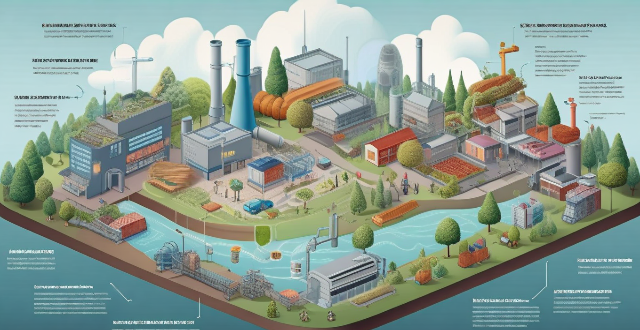
What kind of living conditions can we expect in a lunar base ?
Living on the Moon presents numerous challenges that must be addressed to create a sustainable environment for humans. These include dealing with low gravity, lack of atmosphere, limited water and food resources, waste management, power generation, and communication with Earth. Advancements in technology and scientific research are making it increasingly feasible to establish a lunar base, paving the way for future discoveries and expansion into space.

How would a lunar base affect future space missions to Mars and other celestial bodies ?
A lunar base is expected to significantly impact future space missions, including those to Mars and other celestial bodies. The establishment of a permanent settlement on the Moon would lead to the development of new technologies, such as advanced propulsion systems and life support systems. These advancements would be crucial for future missions to Mars and beyond, where similar challenges would need to be addressed. A lunar base would also provide an opportunity to test and refine these technologies in a more controlled environment than Earth. Living on the Moon would have physiological and psychological effects on humans, such as changes in bone density and stress. By studying these effects and developing methods to mitigate them, scientists could better prepare astronauts for long-term missions to Mars and other celestial bodies. Additionally, understanding how humans adapt to living on the Moon could provide valuable insights into how they might adapt to living on other planets or moons. A lunar base would provide a closer location for logistical support and supply chain management compared to Mars or other celestial bodies. This proximity would allow for easier transportation of supplies, equipment, and personnel between Earth and the Moon, reducing costs and increasing efficiency. The establishment of a lunar base would also require the development of effective resupply and maintenance strategies that would be applicable to future missions to Mars and other celestial bodies. A lunar base would provide an excellent opportunity for training astronauts for future missions to Mars and other celestial bodies. By participating in simulated missions on the Moon, astronauts could gain valuable experience in operating in a low-gravity environment, performing scientific experiments, and maintaining their physical and mental health. The establishment of a lunar base would also require the development of new crew selection criteria that would consider factors such as physical fitness, psychological resilience, and technical skills. The establishment of a lunar base would likely generate increased global interest in space exploration, leading to greater international collaboration and partnerships. This collaboration could result in shared resources, expertise, and funding for future missions to Mars and other celestial bodies, reducing costs and increasing efficiency. International collaboration could also lead to the standardization of technologies and practices across different space agencies, reducing confusion and increasing the overall effectiveness of these missions. In conclusion, a lunar base would have a significant impact on future space missions to Mars and other celestial bodies. From advancements in technology and human adaptation to logistical support and international collaboration, a lunar base would provide valuable lessons and experiences that would help prepare astronauts for long-term missions beyond Earth's orbit. As such, the establishment of a lunar base should be seen as an essential step towards achieving our ultimate goal of exploring and settling other planets and moons in our solar system.
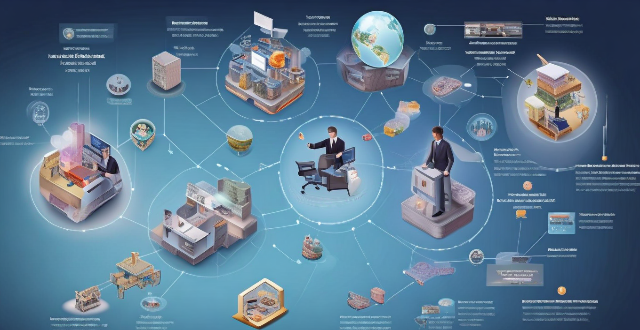
What challenges need to be overcome to create a sustainable lunar base ?
Building a sustainable lunar base presents significant challenges in logistics, environment, technology, and human factors. These include reliable transportation, remote construction, surviving extreme conditions, power generation, effective communication, habitability concerns, health care, and team dynamics. Addressing these issues will require innovative solutions and international collaboration, ultimately paving the way for deeper space exploration.

How would a lunar base contribute to humanity's understanding of the universe ?
A lunar base would significantly contribute to humanity's understanding of the universe by providing advanced research opportunities in geology and astronomy, driving the development of space technology, serving as a training ground for future space missions, and promoting international collaboration.

How will a lunar base address issues related to Earth's overpopulation or resource depletion ?
A lunar base could address Earth's overpopulation and resource depletion by reducing population pressure, enabling sustainable resource use, advancing science and technology, and promoting international cooperation.

How do people in Japan celebrate the Lunar New Year with food ?
In Japan, the Lunar New Year, known as Oshogatsu, is celebrated through various food traditions that symbolize wishes for the new year. One iconic tradition is osechi ryori, a collection of colorful and symbolic dishes arranged in a lacquer box called an ojubako. These dishes include Kohaku Namasu, Kuromame, Tazuki, Kagamobashi, and Datemaki, each representing different aspects of life such as success, health, luck, connections, and learning. Another important food is mochi, a sweet rice cake believed to bring longevity and happiness. On New Year's Day, many families enjoy ozoni, a warm soup with mochi or soba noodles, vegetables, and sometimes chicken or fish, symbolizing the transition from the old year to the new one. While not as widely celebrated as other holidays, these culinary traditions remain significant for those who observe the Lunar New Year in Japan.

What role could international cooperation play in the development of a lunar base ?
International cooperation is vital for lunar base development, allowing cost sharing, resource optimization, innovation collaboration, risk mitigation, comprehensive data sets, research collaboration, diverse perspectives, joint missions, diplomatic ties, global leadership, cross-cultural learning, global community building, harmonized regulations, emergency response planning, environmental impact discussions, and long-term maintenance plans.
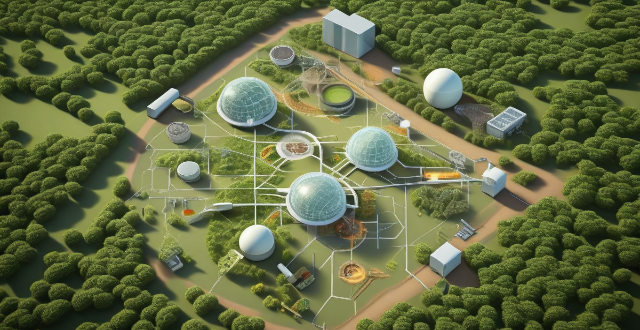
What technological advancements are necessary for the successful establishment of a lunar base ?
Establishing a lunar base requires technological advancements in areas such as life support, energy production, habitat construction, transportation, communication, health monitoring, and extravehicular activity. Innovations like advanced recycling systems, hydroponics for food production, solar power, nuclear energy, 3D printing of habitat components, radiation shielding, rugged vehicles, high-speed internet, automation, telemedicine, improved spacesuits, and specialized tools are essential for creating a sustainable and efficient lunar habitat.

How might a lunar base influence the global economy and job market ?
The establishment of a lunar base could significantly impact the global economy and job market by increasing investment in space technology, creating new industries, driving innovation, and fostering international collaboration. It could also create numerous job opportunities and expand educational opportunities focused on space-related disciplines.

What are the current advancements in space exploration ?
The text discusses current advancements in space exploration, including commercial space travel, Mars and lunar exploration, deep space probes, and telescopes and observatories. These advancements showcase humanity's relentless pursuit of knowledge and understanding of the universe around us.
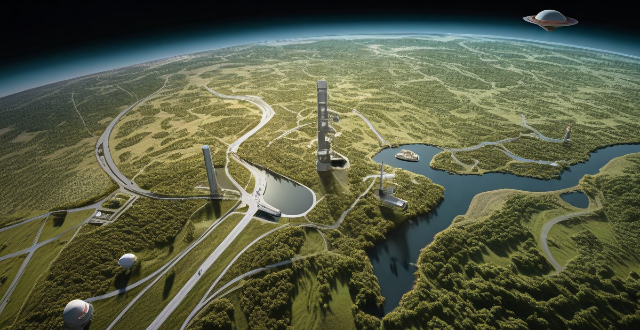
What are the current trends in commercial space exploration ?
Commercial space exploration is a rapidly evolving field, drivenCommercial space exploration is a rapidly evolving field, driven, economic incentives, and small satellite constellations for internet and Earth observation, space tourism and commercial space stations, Moon and Mars exploration, in-space manufacturing and resource utilization, and international cooperation and legal frameworks. These trends demonstrate that commercial space exploration is not only expanding our knowledge of the universe but also creating new industries and opportunities for economic growth.
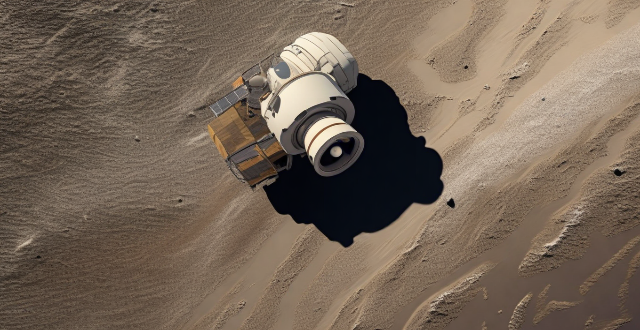
How much does it cost to travel to space ?
The cost of traveling to space varies depending on the type of mission, duration of stay, and provider. Suborbital flights are the most affordable option, while lunar and Mars missions are significantly more expensive. Factors such as training, technology, and risk contribute to the high costs. As technology advances and more companies enter the industry, the cost may decrease, but space travel is unlikely to become affordable for the average person in the near future.

How has private investment impacted the development of space technology ?
Private investment has significantly impacted space technology development by increasing research and development funding, reducing costs, improving efficiency, and driving innovation. Private companies like SpaceX and Blue Origin have made advancements in reusable rockets, satellite communications, and lunar exploration. These investments have also enabled new business models and increased accessibility to space for smaller organizations.

What companies are leading the way in commercial spaceflight ?
Commercial spaceflight is a growing industry with several key players, including SpaceX, Blue Origin, Virgin Galactic, Boeing, and Rocket Lab. Each company has its own mission and achievements, ranging from successful launches and landings of rockets to developing new spacecraft for future missions. These companies are leading the way in advancing humanity's exploration and utilization of space.

What is the role of private companies in space exploration ?
Private companies have become key players in space exploration, driving technological advancements, reducing costs, and fostering innovation. They are at the forefront of developing new technologies such as reusable rockets, advanced propulsion systems, and robotic explorers. Private companies often operate with leaner budgets and more streamlined processes than government agencies, allowing them to deliver space missions at a lower cost. This cost-effectiveness is crucial for making space exploration more accessible and sustainable over the long term. Private companies are known for taking risks and pursuing innovative ideas that might not be considered by government agencies due to budget constraints or strategic priorities. Their involvement has made space missions more accessible and sustainable while opening up new possibilities for exploring our solar system and beyond.